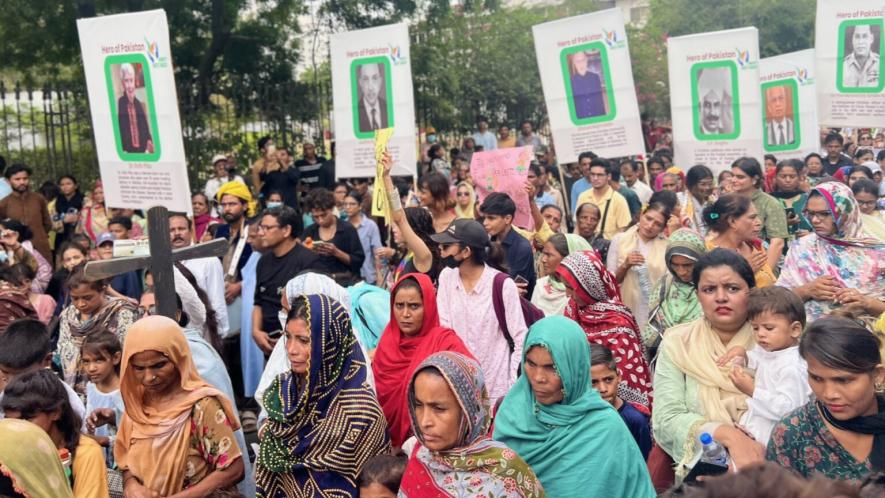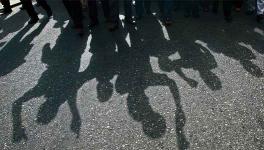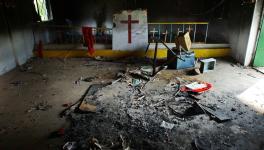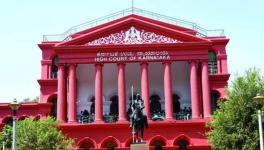Pakistan: Thousands Rally Demanding Equal Rights for Religious Minorities

Minority Rights March 2025. Photo: X
Hundreds of people marched from the YMCA grounds to the Sindh Assembly in Pakistan’s Karachi on Sunday, August 10, highlighting the continuous discrimination and persecution faced by millions of religious minorities in the country and demanding social and political equality for all citizens of Pakistan.
The march, on the eve of National Minority Day, was organized by a collective of minority rights movements called Minority Rights March. The participants included representatives of women, sexual minorities, trade unions, and human rights activists.
They carried banners and posters and shouted slogans about various forms of discrimination and atrocities faced by the religious minorities in the country. Religious persecution was also highlighted by various cultural performances during the rally.
Several speakers called for social and political reforms in the country to address the persistence of systemic biases against minorities in Pakistan. They accused the state of promoting such discrimination by failing to remove provisions in article 40 and 91, which prevent non-Muslims from holding high constitutional posts.
Speakers also called for revisions to the legal and education system in the country to end religious hatred and discrimination.
They highlighted how minorities in Pakistan face forced conversions and violence in the name of blasphemy. The hate spreading in the name of religious differences has led to a surge in mob lynchings targeting members of religious minority communities in recent months across various parts of the country.
Around 4% of Pakistanis belong to various religious minorities. Most of the religious minorities in Pakistan belong to Hinduism, Christianity, Sikhism, and unorthodox sects of Islam, such as the Ahmadiyya faith.
Studies have established that apart from forced conversion and violence in the name of blasphemy, these religious minorities in Pakistan are also forced into particular professions through generations and pushed to live in ghetto-like situations. They face daily discrimination at public places and their religious symbols and practices are often suppressed.
Studies have also found that state and law enforcement agencies in Pakistan often act in a biased manner and fail to implement laws which have been passed after decades of struggle to protect minorities in the country.
Equality and harmony
Though the Pakistani state recognized August 11 as National Minority Day for the first time in 2009, this year’s Minority Rights March was only the third such march.
The central theme of the Minority Rights Marches have been to bring the religious discrimination and persecution faced by minorities of all shades, whether Hindus, Sikhs, or Ahmadis, to the mainstream and build a larger alliance of left, progressive forces in the country to promote religious harmony and values of constitutional equality in Pakistan.
The issue of discrimination and persecution faced by the religious and ethnic minorities in the country has long been a matter of concern for the left and progressive forces in Pakistan.
Taimur Rahman, academic and leader of the Mazdoor Kisan Party (MKP) has described the treatment of the minorities by the state and society as medieval and “a grave threat to the social fabric of Pakistan.”
Zulfikar Ali Bhutto, environmental and political activist who participated in last year’s march, noted that the rising violence against minorities in Pakistan and the perpetrators of such violence enjoying impunity is a betrayal of the founding principles of the country.
Pakistanis “must commit to upholding the dignity and safety of all minority communities,” Bhutto demanded in a post on X.
This year’s organizers of the march presented an 11-point charter of demands for religious harmony and equality.
The demands included amendments to article 40 and 91 to end constitutional discrimination, the revision of school text books to remove all racially discriminatory references, affirmative action quotas for religious minorities in educational institutions, revisions to or the abolition of the blasphemy law in the country, and the active promotion of values of equality by the state.
Courtesy: Peoples Dispatch
Get the latest reports & analysis with people's perspective on Protests, movements & deep analytical videos, discussions of the current affairs in your Telegram app. Subscribe to NewsClick's Telegram channel & get Real-Time updates on stories, as they get published on our website.
























